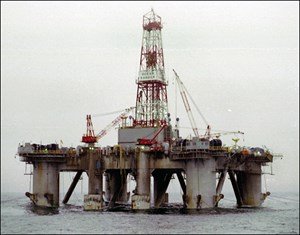An independent Texas oil and gas producer is striking back against a group of insurance companies, which collectively are seeking $250 million in collateral beyond what the oil company has already contracted for bonds backing its production activities.
The energy company, Houston-based W&T Offshore, is asking a federal judge to declare insurers have colluded to damage the company by jointly demanding additional collateral and premiums.
At the heart of the dispute are rules from the federal Bureau of Ocean Energy Management (BOEM) which require energy producers in the Outer Continental Shelf to provide a bond to pay for well, platform, pipeline and facilities cleanup if the operating company fails to do so.
Several years ago, BOEM imposed the idea of requiring small to mid-sized companies such as W&T to provide additional bonds. In over 70 years of producer operations in the Gulf of Mexico, the federal government has never been forced to pay for any abandonment cleanup operations associated with well, platform facility or pipeline operations.
W&T’s legal filing says that armed with that proposal, its insurers (also known as surety providers), including Endurance Assurance Corp., which is owned by Japanese insurance holding company Sompo and others, began demanding additional collateral for surety and indemnity agreements W&T already utilizes and for which it has already paid premiums.
In July, one of the surety companies demanded W&T fully and immediately collateralize their bond by paying an additional $89 million as collateral, then filed suit in November demanding $93.5 million, despite W&T never having missed a previous payment. Other W&T surety companies followed suit, demanding full and immediate collateralization of their bonds.
“These insurance companies and their unreasonable demands for increased collateral pose an existential threat to independent operators like W&T,” CEO Tracy W. Krohn said. “We cannot afford to keep paying for insurance we’ve already paid for in the course of our operations.
“This is no different than your auto insurance carrier all of a sudden demanding you put up 100 percent of your car’s cash value in addition to doubling or tripling your existing premium. It is just not possible or practical—nor fair. These unfair practices beg the question: if insurance companies are requiring full cash collateralization of the bonds they issue, then what is the purpose of independent operators paying them millions of dollars to issue the bonds? These unfair insurance practices deprive independent operators of the very consideration for which they contracted, thereby making the insurance companies’ contractual obligations illusory or non-existent,” said Mr. Krohn.
“We hope the court will recognize these crippling demands are improper and malicious and stop these insurance companies from trying to arbitrarily extort massive amounts of additional premium and collateral from customers like W&T.”
Among other things, W&T’s lawsuit, filed in August and amended today, accuses five insurance companies of conspiracy, saying the insurers met one or more times in 2024 and conspired to raise premiums and collateral. The complaint also includes allegations of price-fixing, antitrust violations and tortious interference with existing contracts, as well as violations of the Texas Insurance Code and violations of the Texas Free Enterprise and Antitrust Act.
It asks a federal judge in Houston to block the companies’ unconscionable and unreasonable demands for collateral and to award damages to W&T.
W&T says it has valid bonds to cover the potential eventual cost of cleaning up its offshore operations if or when the time comes.
Several states, including Texas, are challenging the BOEM rule and in one case they specifically cite W&T as an example of how the rule could be misused to irreparably harm energy producers.
This article was originally posted at www.worldoil.com



Be the first to comment